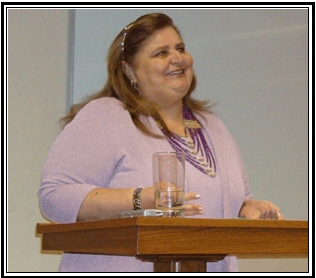 In testimony, people speak truthfully about what they have experienced and seen, offering it to the community for the edification of all. Testimony is basic to community, and happens in every vital Christian community where words of freedom are spoken and heard. The practice of testimony requires that there be witnesses to testify and others to receive and evaluate their testimony. It is a deeply shared practice – one that is possible only in a community that recognizes that falsehood is strong, but that yearns nonetheless to know what is true and good. One of the best ways to understand our faith is in terms of “story.” Our own story of faith situates itself within the stories of the communities we belong to, which in turn situate themselves within the story of the Christian faith. When we tell our stories within the context of our faith community, we help continue the story of the Christian faith. Christian testimony has two dimensions: telling the truth to God about our lives, and bearing witness to others about God’s redemptive activity in the world. We strengthen each other; we challenge each other, we are examples for each other. Storytellers everywhere and in every generation have kept alive our diverse heritage. As we tell our stories, we reinterpret the archetypal biblical stories of exodus, exile and expiation. Sometimes we offer testimony with our lives. Sojourner Truth, Martin Luther King Jr., and Mohandas Gandhi all testified with their bodies, their actions, their lives. The New Testament word for witness is “martyr.” We have been repeatedly called to speak truth to the Powers. In Central America, Archbishop Oscar Romero urged truth-telling that risked lives. He lost his as he told “truth to Power.” What risks are inherent in giving unpopular testimony? How can people support one another in bearing witness and speaking the truth? How can we draw strength and inspiration from “the great cloud of witnesses” who have gone before us (Hebrews 12:1)?
In testimony, people speak truthfully about what they have experienced and seen, offering it to the community for the edification of all. Testimony is basic to community, and happens in every vital Christian community where words of freedom are spoken and heard. The practice of testimony requires that there be witnesses to testify and others to receive and evaluate their testimony. It is a deeply shared practice – one that is possible only in a community that recognizes that falsehood is strong, but that yearns nonetheless to know what is true and good. One of the best ways to understand our faith is in terms of “story.” Our own story of faith situates itself within the stories of the communities we belong to, which in turn situate themselves within the story of the Christian faith. When we tell our stories within the context of our faith community, we help continue the story of the Christian faith. Christian testimony has two dimensions: telling the truth to God about our lives, and bearing witness to others about God’s redemptive activity in the world. We strengthen each other; we challenge each other, we are examples for each other. Storytellers everywhere and in every generation have kept alive our diverse heritage. As we tell our stories, we reinterpret the archetypal biblical stories of exodus, exile and expiation. Sometimes we offer testimony with our lives. Sojourner Truth, Martin Luther King Jr., and Mohandas Gandhi all testified with their bodies, their actions, their lives. The New Testament word for witness is “martyr.” We have been repeatedly called to speak truth to the Powers. In Central America, Archbishop Oscar Romero urged truth-telling that risked lives. He lost his as he told “truth to Power.” What risks are inherent in giving unpopular testimony? How can people support one another in bearing witness and speaking the truth? How can we draw strength and inspiration from “the great cloud of witnesses” who have gone before us (Hebrews 12:1)?